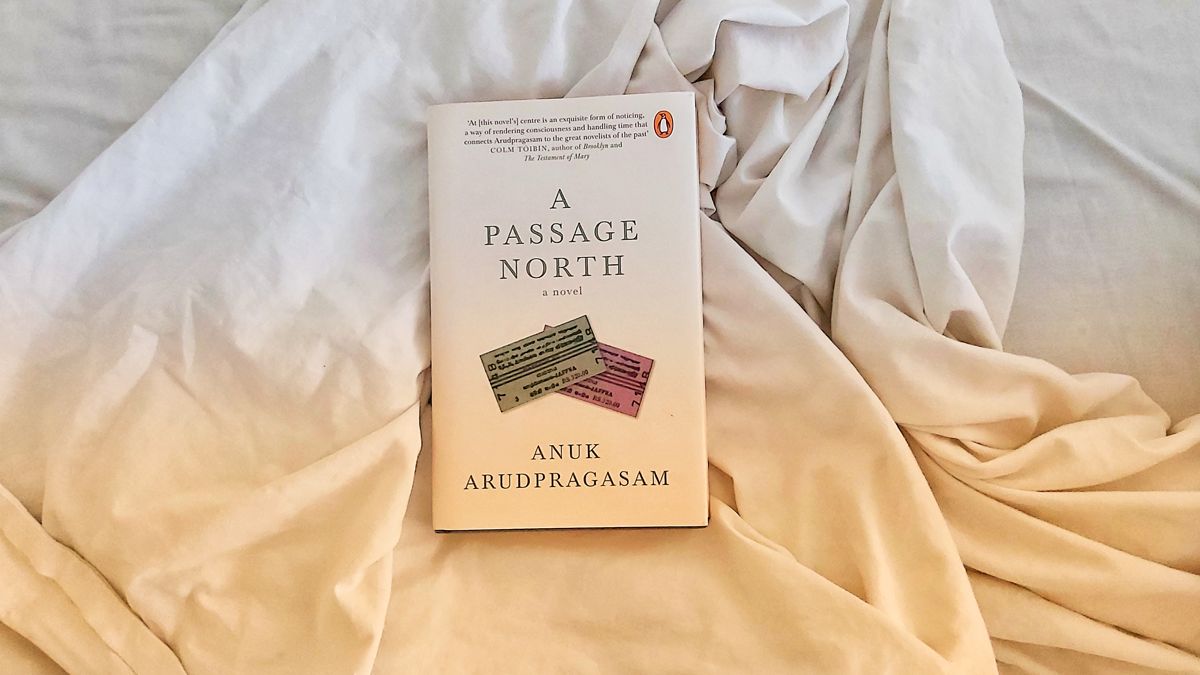The Booker Prize 2021 shortlisted “A Passage North” is an intricately woven story that fuses together past and present to offer a glimpse into life during wartime and the post-war physiologies of those who were affected by war. Krishan is a young Tamil who resides in Colombo suddenly receives the news of the death of her grandmother’s caretaker, Rani. The train journey Krishan takes evokes the fragments of his memories of his family, Rani, and his ex-girlfriend: Anjum.
One of the reasons I liked the story so much is that the characters aren’t the main focus of it; rather, it’s the main character’s thoughts about those characters’ presence and memories that are. These candid descriptions of these third-party characters contributed significantly to the development of each character, including Krishan’s. It also aided in comprehending the intricacies of how a three-decade war affects people regardless of whether they have firsthand experience or not.
Many critics have written blurbs and reviews on this book since it was shortlisted for the 2021 Booker Prize. One of the most common criticisms leveled at the book was its use of extremely long sentences to fill up lengthy passages. I usually avoid such books because they cause me to lose track of the story if the sentences are too long. However, for this story, the lengthy sentences were well-written and served the plot well. I was completely engrossed in the story and devoured the pages-long passages in one sitting.
If you consider the main character Krishan to be a human who has been on this planet for a few decades, the funeral of his grandmother’s caretaker may be a minor event in his life. When you consider it in that light, you might wonder, ‘Is it something anyone can write a novel about?’ That’s how compelling this plotline was. Even though the funeral was the story’s indirect climax, the thoughts the main character generated played a larger role. The minor details about the war, Tamil funeral ceremonies, bereavement, and grief elevated this book to the level of a masterpiece.
Anuk’s images of bereavement and grief are incredible. One of my favorite passages he wrote about the gradual process of letting someone go after they pass away is very well thought out. We mourn for the body first, then the ashes, and finally, that person becomes a portrait on the wall. How true and trivial that idea is that having lost some loved-ones in my life, I never thought about it in the same way.
I would recommend this book to anyone who enjoys reading about characters’ thoughts and psychologies. Taking everything into account, I gave it a 4.75. The only time it lost a point was when I became bored with the part about Krishan’s ex-girlfriend. Aside from that, the novel was a work of art.
Related posts
Archives
- June 2023 (1)
- May 2023 (3)
- January 2023 (1)
- December 2022 (1)
- July 2022 (1)
- June 2022 (7)
- May 2022 (1)
- April 2022 (1)
- March 2022 (2)
- February 2022 (2)
- December 2021 (1)
- October 2021 (2)
- September 2021 (11)
- August 2021 (25)

